By Nick Butler
Tags: Other

Find out how clarifying, cementing and celebrating our core values has allowed Boost to build an award-winning team that has continued to thrive even under COVID-19 lockdown.
The core values initiative that this case study looks at is part of a wider drive to create a team unified behind a common purpose and priorities.
We’re following the work of people like Patrick Lencioni and Jim Collins, who have analysed what makes organisations successful in books such as Lencioni’s The Advantage and Built to Last by Jim Collins and Jerry I. Porras. (For a quick introduction to their ideas, you can check out articles like Make Your Values Mean Something by Patrick Lencioni and Building Companies to Last by Jim Collins.)
Both Lencioni and Collins stress the importance of having a clear vision of what matters to your organisation.
Everyone needs to know where you are going and how you’ll get there.
With everyone pushing in the same direction, you reinforce your progress as you go, building ever greater momentum.
In Patrick Lencioni’s Advantage model, you get this clarity by answering six questions:
For Jim Collins, values sit within a Vision framework:
At Boost, our purpose is:
Supporting others to create positive and lasting impacts
Our goals are set out in our roadmap for the future: Boost 2026. This gives us targets that will maximise our ability to achieve our purpose.
Our purpose and goals point us all in the same direction and our core values ensure we get there in lockstep.
Jim Collins and Jerry Porras describe core values as the essential and enduring tenets of an organisation. “A small set of timeless guiding principles, core values require no external justification; they have intrinsic value and importance within the organization.”
For Patrick Lencioni values are the behavioural traits that are inherent in an organisation. “Core values lie at the heart of the organization’s identity, do not change over time, and must already exist.”
So, your core values describe what you are, not what you want to be, or what you think will work.
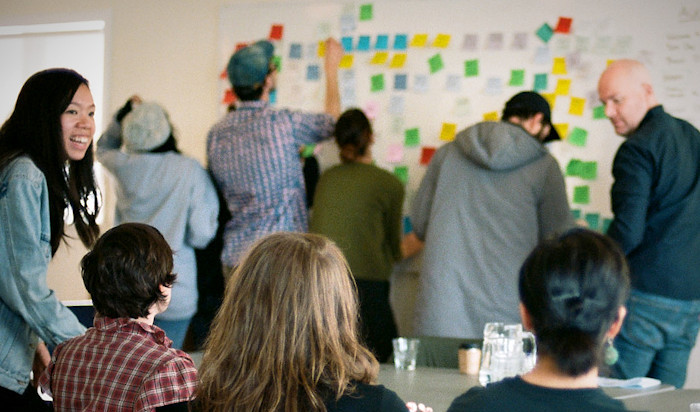
Here’s how we created clarity around our core values, then reinforced them so they are embedded in the way we work.
Boost already had a set of values:
But when we reviewed these, we felt they were not the best description of the values that the team demonstrated in their day-to-day work.
The first step in clarifying our core values was to go back to the behaviours that demonstrate the values. What were the positive ways the team behaved with each other and with clients? And what past behaviours had created frictions that showed they ran counter to our shared values?
Our leadership team used the trusty affinity mapping process to move from behaviours to values. Working silently, they wrote down each behaviour they’d seen on a post-it. Once everyone had finished noting behaviours, they stuck the post-its on a whiteboard, reading them out and clarifying as required. Next, they grouped like with like. Once the groupings were clear, they were given a label that summed up the core value the behaviours represented.
The next step was to craft descriptions of the core values based on the behaviours. These descriptions needed to be authentic, relatable and concrete.
We then shared the draft values with the wider team for feedback.
This started with a whole-team meeting. Our CEO explained what core values are and what they aren’t, why Boost wants to be clear about them, and why we were revisiting them. We then discussed the values the leadership team had come up with.
These were then posted prominently on the wall with a space for feedback, suggestions and questions.
Once the whole team had had a chance to have input into the values, we shared the final versions, adding them to the handbook that all Boosters receive.
Responsibility | Haepapatanga: We have a responsibility to have an economically successful organisation to ensure stability and opportunities for team members, stakeholders and clients. We take responsibility for our customers’ outcomes. We are in charge of our own learning and sharing knowledge with the wider team.
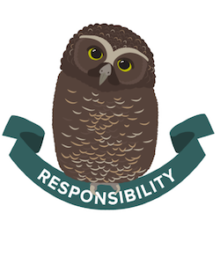
Servant leadership | Rangatiratanga manukura: We are all leaders and at Boost, all leaders serve. We are focussed on what we can do for others and developing our teams. We balance the needs of the individual with those of the organisation. We listen. We coach, we are humble and trusting. We value service not status.
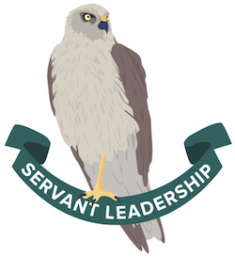
Courage | Te hopo whitia: We have thoughtful opinions but hold them lightly. We are at our best when we embrace constructive conflict and commit to being authentic and vulnerable. Feedback is a gift to give and receive, we lean into difficult conversations. Be brave and give it a go.
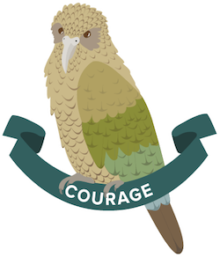
Manaakitanga: We make everyone feel welcome. We create an environment where everyone can be successful; we nurture relationships, raise others up and work to create and maintain safe spaces.
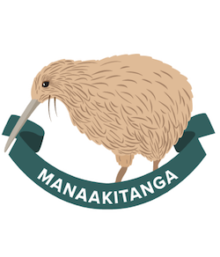
You can read the translator’s commentary on how he came up with the reo versions of our values in our post on Using te reo in the workplace.
Now we’d identified our shared values, we needed to reinforce them to harness the strength that comes from common principles and priorities. According to Patrick Lencioni values aren’t just something you communicate, they’re something you over-communicate.
Every month, the team gets together for a Values Awards ceremony.
At the ceremony, four people are presented with a medallion, one for each of our values. As each award is presented, we explain the specific way each winner has demonstrated the value. Winners also get a certificate explaining why they’ve won the award and a value sticker for their laptop cover, so they can collect all four.
The Awards embed the values in the rhythm of our work. They further clarify the values by showing what they look like in practice. Being reminded of the ways our colleagues embody our common values brings the team together and reinforces the values. Because the previous winners choose the next recipients, they consider and discuss what the values mean to them, which makes the values more relevant and real.
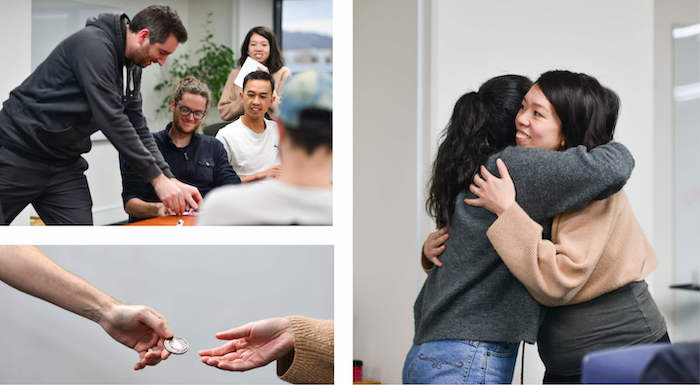
We use our recruitment process to reinforce our core values in two main ways.
Our interviews include questions designed to identify what’s important to applicants, what it is they value in their work and their working relationships.
For example, the wider team demonstrates Responsibility by interviewing applicants and running technical challenges, and Manaakitanga by looking after applicants when they spend a meet-the-team day at Boost and by buddying-up with new Boosters during onboarding.
For nine years now, Boost has been Worldblu-certified as a freedom-centred workplace. The values of Responsibility, Servant leadership, Courage and Manaakitanga both flow from and reinforce our culture of empowerment.
Our Boost 2026 goals embed these values and this culture. Along with growing the company to increase our impact, we will:
We’re already seeing the benefits of our focus on core values.
In 2019, we won the Team Gold Award.
This award recognises the initiatives we’ve introduced in our mission to make Boost the best place to work in New Zealand, initiatives guided and made possible by our shared values.
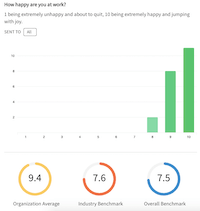 The benefits are also coming through in key metrics.
The benefits are also coming through in key metrics.
As part of our drive to make Boost the best place to work in New Zealand, we use TinyPulse to survey how happy the team is at work.
We are also seeing increases in our capacity to help others have a positive and lasting impact, and in our productivity. This year we have:
We survey the team to check that we are staying true to our core values (all answers are anonymous).
Here are some of the responses:
“The values shone through even in lockdown.”
“The set of crystal clear values and ideals that every member of every team understands and lives by helps to create a culture that is consistently amazing to be a part of.”
“Even more so now with the medallions because it brings the values to the forefront and lets the whole team know who is showing our values.”
As with many organisations, the pandemic has been the biggest challenge of 2020. But having a team aligned behind common values meant we could stay strong and support each other while we were all working remotely. New Zealand has moved out of lockdown (for now, anyway) so we can look back at how we coped.
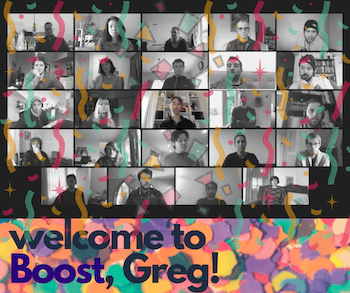
These are achievements the team at Boost are very proud of. They are a potent reminder of the power of shared values and common purpose. We hope this core values case study helps you get your own team synchronised for success.